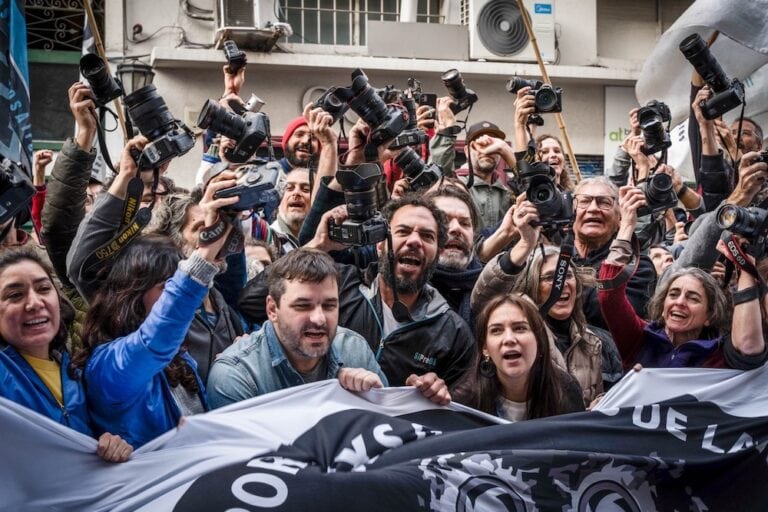The IAPA mission was warned about the existence of legislation that could potentially restrict the media through discrimination in the granting of operating licences, and by interference in media content and editorial positions.
(IAPA/IFEX) – BUENOS AIRES, Argentina, May 5, 2011 – The Inter American Press Association (IAPA) today expressed its concern at the Argentine government’s actions and exclusions that, as part of an official strategy to control information, severely restrict the full exercise of freedom of expression in the country, the organization claimed.
IAPA President Gonzalo Marroquín, who headed the IAPA delegation, warned that the evidence gathered confirmed reports that “freedom of the press is in a state of deterioration in Argentina.” Marroquín issued “a call to all sectors and the people in general to defend and promote freedom of expression, because without it there can be no true democracy.”
Marroquín, president of the Guatemala City, Guatemala, newspaper Siglo 21, was accompanied on the visit to Buenos Aires by Robert Rivard, chairman of the IAPA’s Committee on Freedom of the Press and Information and editor of the San Antonio Express-News, Texas; committee co-chair, Claudio Paolillo of the Montevideo, Uruguay, news magazine Búsqueda; Chapultepec Committee chair, María Elvira Domínguez of El País, Cali, Colombia; IAPA Executive Director Julio E. Muñoz, and Press Freedom Director Ricardo Trotti.
Although a document handed by the Media Ministry to the IAPA delegation contained a number of accusations against a specific group of media outlets and claimed that there is “full freedom” of the press in the country, the hemisphere organization was able to verify a different situation in which the confrontation and polarization of society has been encouraged.
In numerous interviews with political, social and press representatives the IAPA mission was repeatedly told of the existence of legislation that could potentially restrict the media through discrimination in the granting of operating licenses, by clear interference in media content and editorial positions, and a bill that would declare the manufacture, sales and distribution of newsprint a matter of public interest.
The IAPA also detected the unlawful use of public resources to punish or reward news media and journalists through the placement of official advertising based on their editorial line. In addition, the mission heard numerous complaints about the creation of publicly- and privately-owned networks of journalists and media devoted to producing propaganda and/or supporting the actions of the government.
The mission also received concrete accusations of harassment and intimidation on the part of government agencies towards independent or critical members of the press, of failure to comply with court rulings regarding press freedom that enabled, for example, newspaper circulation to be blocked on March 27 this year, without leading to any form of final accountability, and the push for unexpected legal actions accusing newspaper executives of alleged crimes against humanity.
Rivard said that the IAPA’s fear was that “the climate of press freedom would continue to deteriorate,” adding that “if President Cristina Fernández de Kirchner does not deal with this situation of constant attacks on the news media the Argentine people will once again, as in dark times in the past, lose true freedom of expression.”
( . . . )


